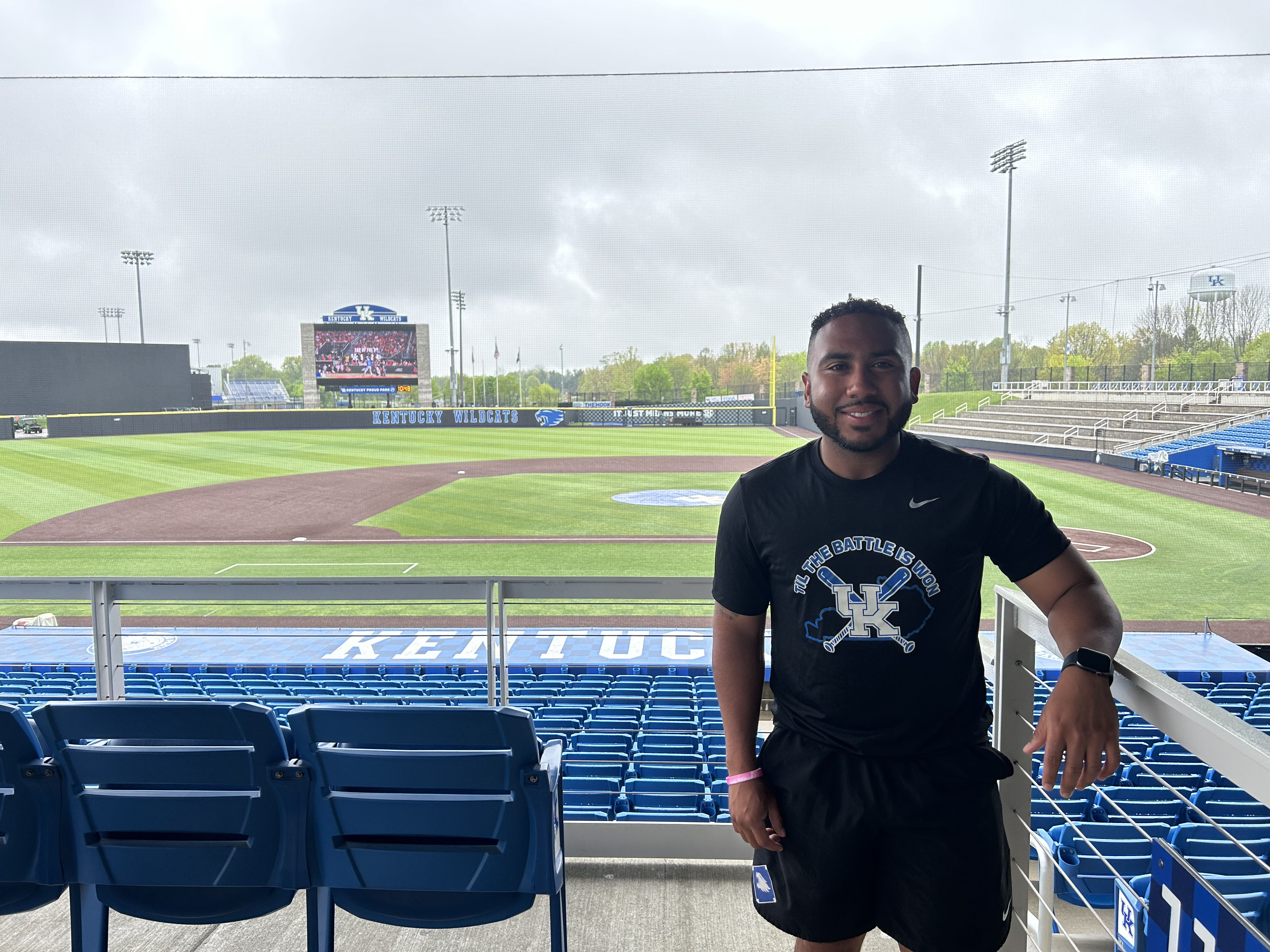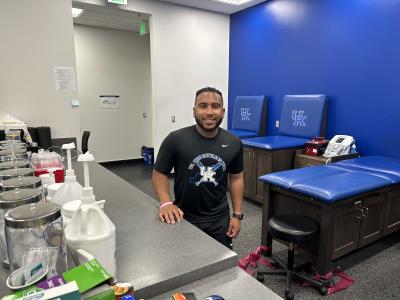College World Series Bound: AT Alumnus Wells Enjoying UK Baseball’s NCAA Run

By Ryan Clark
CHS Communications Director
When UK star baseball pitcher Mason Moore woke up on June1, he wasn’t sure he’d be able to take the mound for his team the following day.
The reason? A severe stomach bug. “It kind of hit me yesterday right before the game,” he told reporters.
It must have been bad, because the Wildcats were advancing into the Regionals of the NCAA Tournament, and they needed Moore to pitch.
He had about 24 hours to get ready, so he stayed home, and the team’s athletic trainers hooked him up to fluids to nurse him back to health.
It worked.
After going through two full IV bags, Moore was feeling better. And he gave the credit to those athletic trainers.
“The trainers did a really good job of getting me healthy,” Moore said.
The Cats’ right-handed ace went on to throw six shutout innings the day after to help UK beat Indiana State 5-0 and clinch the Lexington Regional. It was a testament not only to Moore’s ability to bounce back, but also to UK baseball’s athletic training staff, led by College of Health Sciences alumnus Richie Wells.
Wells, who earned a graduate certificate in Musculoskeletal Injury Management from the Athletic Training program in 2022 and became the Head Baseball Athletic Trainer that same year, has spent a total of four seasons with the team. He’s had an up-close view as baseball has become more popular than ever on UK’s campus.
This weekend, the team hosted its first-ever Super Regional at Kentucky Proud Park, and defeated Oregon State in two games to earn its first-ever berth in the College World Series.
A Yankees fan from the Bronx, N.Y., who played baseball from the age of 4 up until he was in college, it seems like Wells was destined to be doing this job, for this team.
We caught up with him as UK baseball prepares for its biggest test yet.
Here’s a few questions with … UK Head Baseball Athletic Trainer Richie Wells:

Did you always want to be a baseball athletic trainer?
I played baseball, and I had a connection to it. I coached. It was one of those things where I loved being around the game, so it makes sense.
Does it make a difference with the UK players that you can say you played college baseball? I’m sure having that background helps.
Huge. Massive. It’s relationship building. We’re able to talk the game while we’re working. For us to be able to talk the game while we’re working, it makes everything, all the rehab protocols, that much better.
Believe it or not, it’s helped me out on the return-to-play side of it. We understand, ‘Hey – we’re going to get you back to doing the thing you love to do. Because I remember doing it.’
What does it mean as part of the support staff when a team has an unparalleled season like this? What satisfaction do you get? Is it the same as being a player?
It’s a little bit different. I’m more happy for the guys. They work hard, man. They’ve been through a lot of adversity, individually. To see them come here and take a chance on this place and have success as a group, it’s fun to watch.
You’re at the top of the college baseball mountain here in the SEC. Is there anything that’s surprised you?
The thing that surprised me is the impact you have off of the field. You have no idea, just by being the human being that you are, the impact that you have on some of our players.
It’s as simple as giving them a hug every day, or asking them how they’re doing everyday — or just once in a while — it doesn’t have to be every day. There are guys I met as freshmen who have introduced me to their parents. And that’s cool.
Was it this way when you were an athlete? I feel like there’s a bit of culture change in the way we’re there for others now, especially when it comes to mental health. I mean — you’re an athletic trainer, but it seems like you really are “support.”
Yeah — I always look at this job as I have to be at my best on somebody’s worst day. That’s just what we do. I have to be at my best on the worst day of someone’s career. And it doesn’t happen often — which, in some ways, makes it that much harder.
You don’t have frequency to get used to that. You have to be able to support, encourage and be there for them. It’s just part of the job. That one thing is always front of mind.